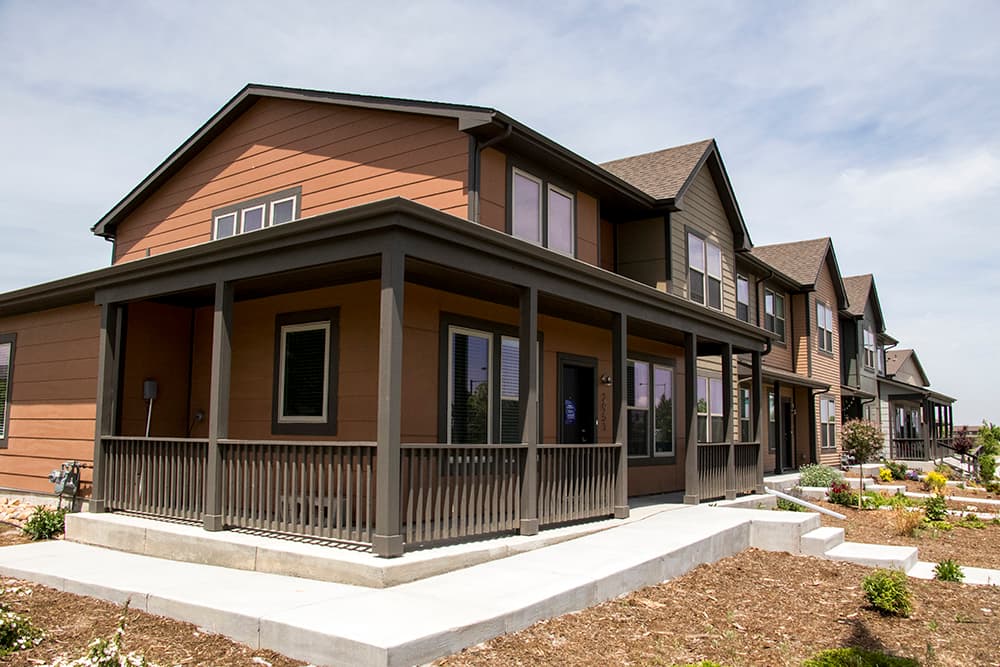When bankers start giving away money so borrowers can buy homes, it's hard not to think back to the mortgage meltdown of a decade ago.
"I can appreciate that concern because I lived through that crisis," said Allen Seelenbinder, Bank of America's executive for consumer and small business retail lending.
Seelenbinder stressed in an interview that Bank of America wasn't trying to lure unsuspecting and unready buyers into the housing market with its grants that borrowers can use toward down payment or closing costs. Bank of America earlier this year announced a nationwide, $5 billion affordable homeownership initiative aimed at helping low- to moderate-income and minority homebuyers.
Minorities had been targeted by predatory lenders and were particularly hard hit when the U.S. housing market crashed in 2008 in the worst blow to the U.S. economy since the Great Depression. The Great Recession saw homeowners with subprime and other bad loans defaulting in large numbers, home prices dropping and millions of Americans suffering foreclosures. While the overall economy has recovered, wages for many workers have not.
Bank of America recently announced it was bringing the down payment program that's part of its nationwide initiative to Denver. Eligible households can get 3 percent of the purchase price up to $10,000 to be used toward their down payment or closing costs.
"It's simply a grant to help communities and increase homeownership," Seelenbinder said, adding it was not for people without savings, but for those who were struggling to save enough to buy a home.
In Denver, a 3 percent down payment can be a high hurdle. In May, according to the Denver Metro Association of Realtors, an average single-family home cost $555,482. That's a downpayment of about $16,664. Bank of America's Seelenbinder said his bank sees skyrocketing home prices in the Denver area in recent years as "a crisis."
The Bank of America grant is for people who get a Home Possible mortgage, a widely available fixed-rate product of the Federal Home Loan Mortgage Corporation, or Freddie Mac, with a down payment as low as 3 percent and lower insurance costs. The Home Possible mortgages to which the Bank of America grants are tied are only for primary residences and are structured with "a very keen eye" on buyers' ability to repay loans, Seelenbinder said.
Bank of America works with Freddie Mac to ensure participants receive counseling on what they are taking on when they buy a home on credit.
A recent survey of more than 1,000 renters and more than 2,800 homeowners across the country commissioned by Freddie Mac found that the upfront costs of purchasing a home weighs on them. According to Freddie Mac's "Profile of Today's Renter and Owner" released last month, 88 percent of low-income renters and 72 percent of middle-income renters said coming up with a down payment and closing costs would be an obstacle if they were considering buying a home.
The Freddie Mac survey also found that renters are more likely to be what is considered cost burdened, or spending too much of their income on housing. According to the survey, 34 percent of renters spend more than a third of their income on rent, compared to 25 percent of homeowners spending more than a third of their income on their mortgages.
In a statement accompanying the report's release, David Brickman, president and incoming CEO of Freddie Mac, said housing costs were having an impact on a range of households.
"While we tend to focus primarily on wages not keeping up with house prices and misperceptions of down payments, we should also recognize that for many millennials and Gen Xers, the basic cost of living has gone up," Brinkman added. "Heavy burdens from student loans and the rapidly rising cost of child care are clearly affecting the housing decisions of these individuals. Given these challenges, it's not surprising that more than one-third of survey respondents believe ownership is becoming less accessible."
Freddie Mac buys mortgage loans from lenders, allowing them to make more loans. Freddie Mac and its older sister, the Federal National Mortgage Association known as Fannie Mae, had to be bailed out by the federal government in 2008 because of the housing market crash.
Bank of America isn't the only place Denverites can turn for help raising that down payment.
Grants are also available from organizations such as the Colorado Housing and Finance Authority. The Colorado Housing Assistance Corporation makes low-interest loans to help with down payments.
Michelle Mitchell, president of the Colorado Housing Assistance Corporation, said Bank of America was right to point to the down payment as "one of the biggest barriers to homeownership."
"And there's lots of ways to get around it."
She said qualified counselors who work for her and other organizations can help would-be homeowners determine which products and programs are right for them. Grants can sometimes mean buyers will have to pay a higher interest rate, Mitchell said. Using the Bank of America grants does not impact the interest rate, but Seelenbinder said the grants could be taxable as income.
Mitchell said, "Anything that will help people is probably a good idea. There's usually a cost. Sometimes it's well worth it."
Lance Guanella, who is deputy executive director of and leads homeownership classes for the Southwest Improvement Council neighborhood group, welcomed new sources of support for would-be homebuyers.
But he said buyers should also bring their own savings to the table, perhaps to put toward the downpayment to reduce their overall loan and interest payments.
Guanella also advises prospective homeowners to take the kinds of classes Bank of America requires of its grant recipients. There, they can learn about the need, for example, to have savings for maintenance emergencies.
"Like hail storms. I'll use that as an example from personal experience," said Guanella, who recently suffered some roof damage at his own home.
Most importantly, Guanella said, prospective homebuyers should not rush into the market.












